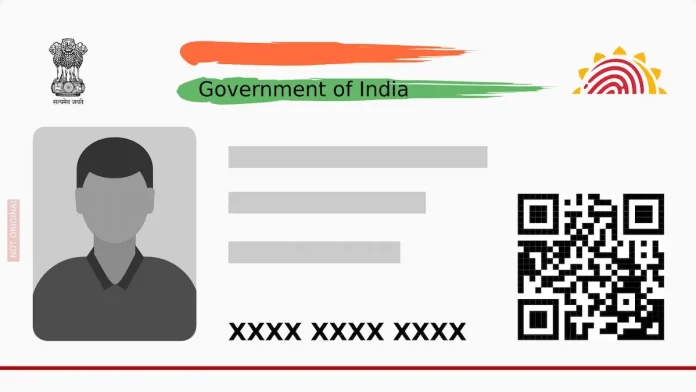India’s Aadhaar Card system, introduced in 2009, is one of the world’s largest biometric identification projects.
It has become an essential part of the lives of over a billion Indians, serving as a unique identification number for citizens.
While many people are familiar with the basics of Aadhaar, there are several intriguing and lesser-known facts about this groundbreaking initiative.
Let’s explore some of these interesting aspects of the Aadhaar Card system
10 Important Facts about Aadhaar
- Guinness World Record: The Aadhaar Card project holds a Guinness World Record for being the most extensive biometric ID system globally. As of 2022, it had issued over 1.25 billion Aadhaar cards, surpassing all previous records.
- Unique Identification Number: Each Aadhaar cardholder is assigned a unique 12-digit identification number. This number is generated based on the person’s biometric and demographic data, making it highly secure and difficult to duplicate.
- Brainchild of Nandan Nilekani: The concept of Aadhaar was the brainchild of Nandan Nilekani, the co-founder of Infosys and the former Chairman of the Unique Identification Authority of India (UIDAI). His vision was to create an inclusive identity system that would benefit millions of Indians.
- Biometric Data Collection: The Aadhaar enrollment process involves the collection of biometric data, including fingerprints and iris scans, to establish a robust and foolproof identification system. This biometric data helps eliminate duplicate or fraudulent identities.
- Aadhaar Authentication: The Aadhaar system offers a unique method of authentication called “Aadhaar Authentication.” It allows citizens to validate their identity for various services, including banking, mobile connections, and government schemes, using their biometric or One-Time Password (OTP) methods.
- Opt-Out Option: Contrary to popular belief, obtaining an Aadhaar card is not mandatory. While it is widely used and increasingly necessary for various services, Indian citizens can choose not to enroll for an Aadhaar card if they prefer not to.
- Digital Locker: The Aadhaar-based Digital Locker, also known as DigiLocker, is an online platform that allows citizens to securely store important documents and certificates. It eliminates the need for physical copies and provides easy access when required.
- Aadhaar Helpline: The UIDAI has established a 24×7 helpline for Aadhaar-related queries and assistance. Users can dial “1947” from any mobile or landline in India to access support services in multiple languages.
- Use Beyond India’s Borders: The concept of Aadhaar has garnered international interest, and several countries have expressed curiosity about adopting similar identification systems to improve governance, social services, and financial inclusion.
- Controversies and Privacy Concerns: The Aadhaar system has faced controversies and legal challenges regarding privacy concerns and the potential misuse of personal data. However, the Indian government has taken several measures to address these issues and strengthen data protection.
Important SC Judgments on Aadhaar
Aadhaar has been a topic of significant legal discussion in India, and several landmark judgments have shaped its implementation and legality. Here are some key judgments related to Aadhaar:
Justice K.S. Puttaswamy (Retd.) v. Union of India (2018)
This judgment, commonly known as the “Aadhaar judgment,” was delivered by a nine-judge bench of the Supreme Court of India on September 26, 2018.
The court upheld the constitutionality of Aadhaar but imposed restrictions on its usage, emphasizing that Aadhaar cannot be made mandatory for essential services such as banking and phone connections.
The judgment also ruled that linking Aadhaar to PAN (Permanent Account Number) for income tax purposes is constitutionally valid.
Justice K.S. Puttaswamy (Retd.) v. Union of India (2019)
This judgment, commonly known as “Aadhaar-2,” was delivered by a five-judge bench of the Supreme Court of India on September 26, 2018.
The court upheld the validity of the Aadhaar Act, 2016, with certain exceptions and modifications as laid down in the previous Aadhaar judgment.
The court clarified that private companies cannot seek Aadhaar information from individuals.
Lokniti Foundation v. Union of India (2018)
In this judgment, the Supreme Court held that the government cannot make Aadhaar mandatory for availing welfare schemes and services.
It also directed the government to ensure that no citizen suffers exclusion or denial of services due to lack of Aadhaar.
These judgments reflect the dynamic and evolving nature of Aadhaar’s legal landscape.
The Supreme Court’s decisions have played a crucial role in shaping the Aadhaar ecosystem, striking a balance between the benefits of efficient service delivery and protecting citizens’ privacy and rights.
The Aadhaar Card system has undoubtedly revolutionized identity authentication and service delivery in India.
Its vast reach, biometric authentication, and unique identification number make it an impressive feat in the world of technology and governance.
While controversies have arisen, the Indian government continues to evolve the Aadhaar system to ensure data security and maintain its vision of providing a more inclusive and efficient identity platform for its citizens.
As Aadhaar’s journey continues, it remains an extraordinary example of how technology can transform the lives of billions.
